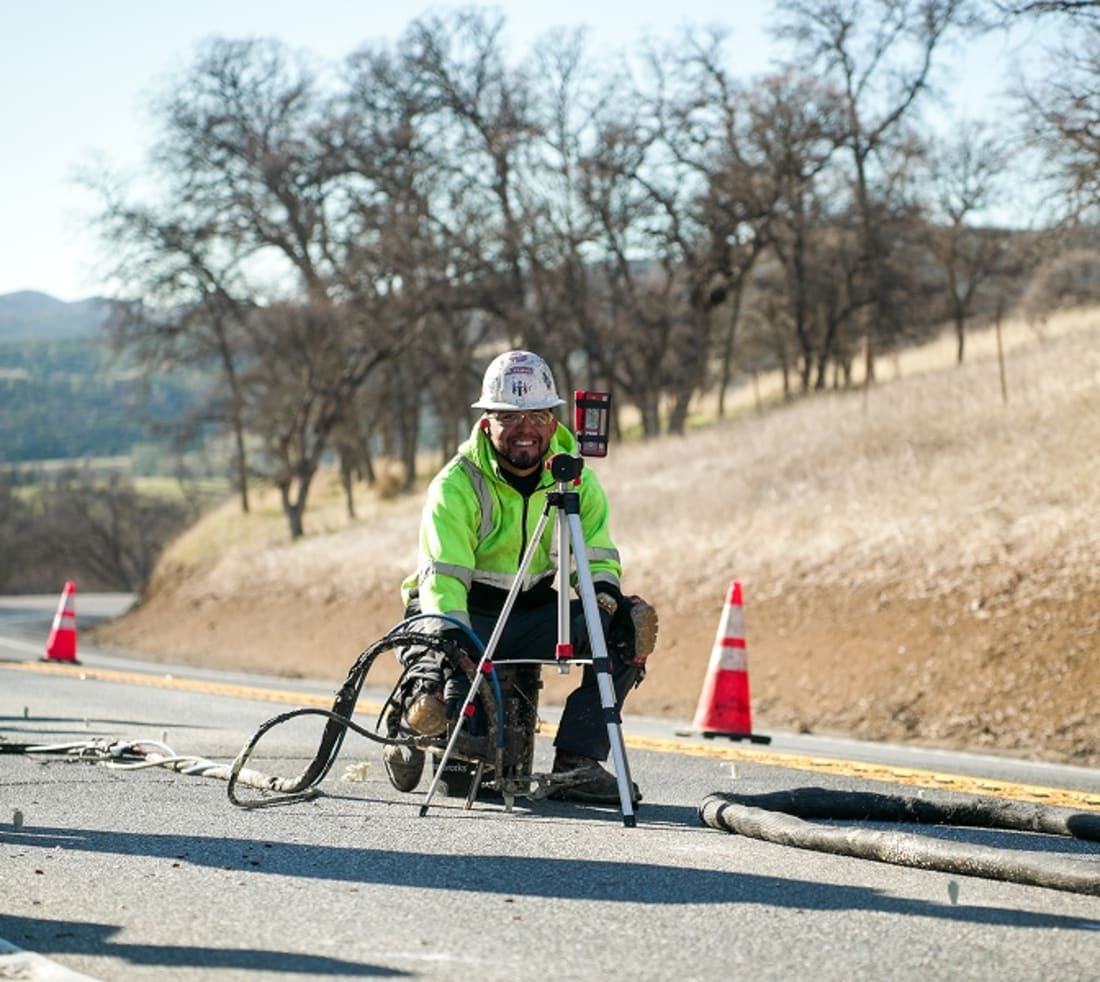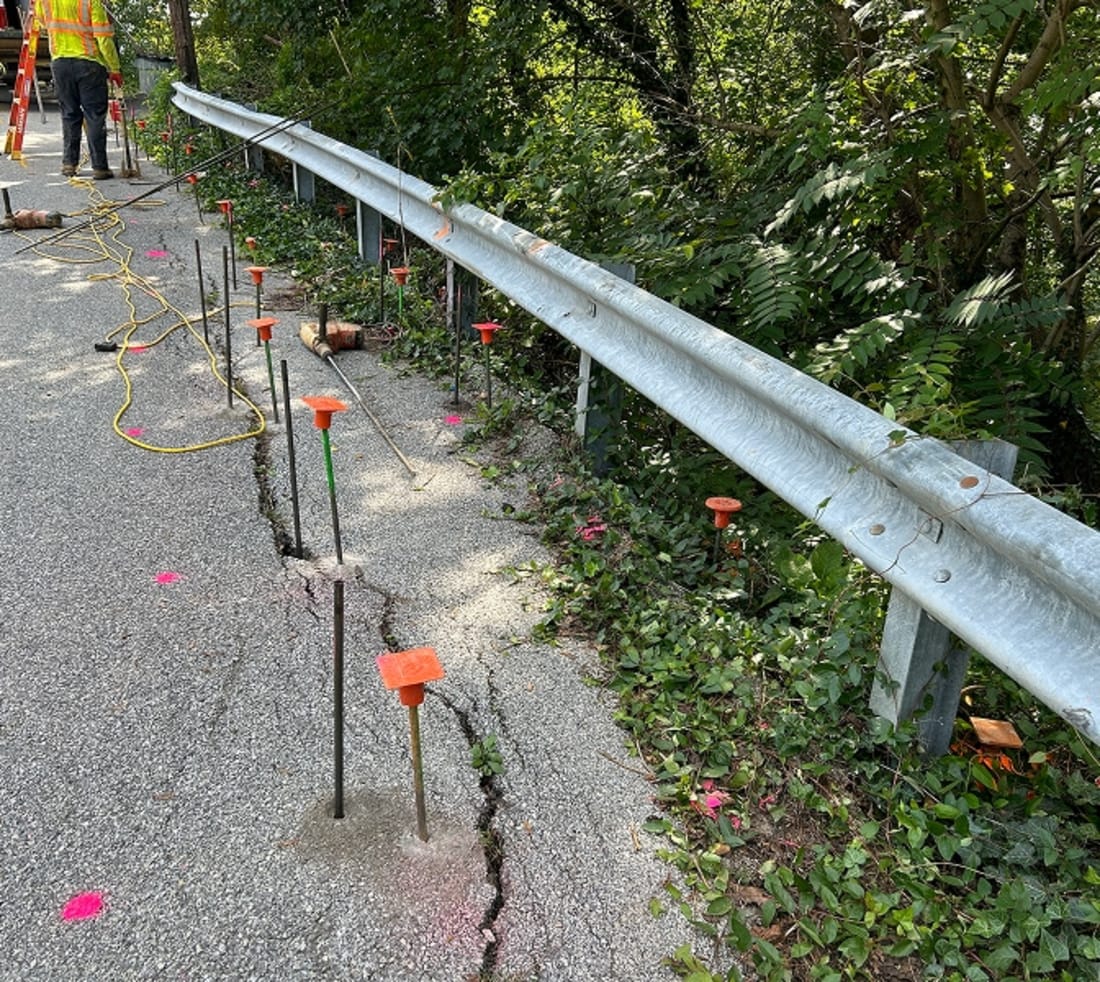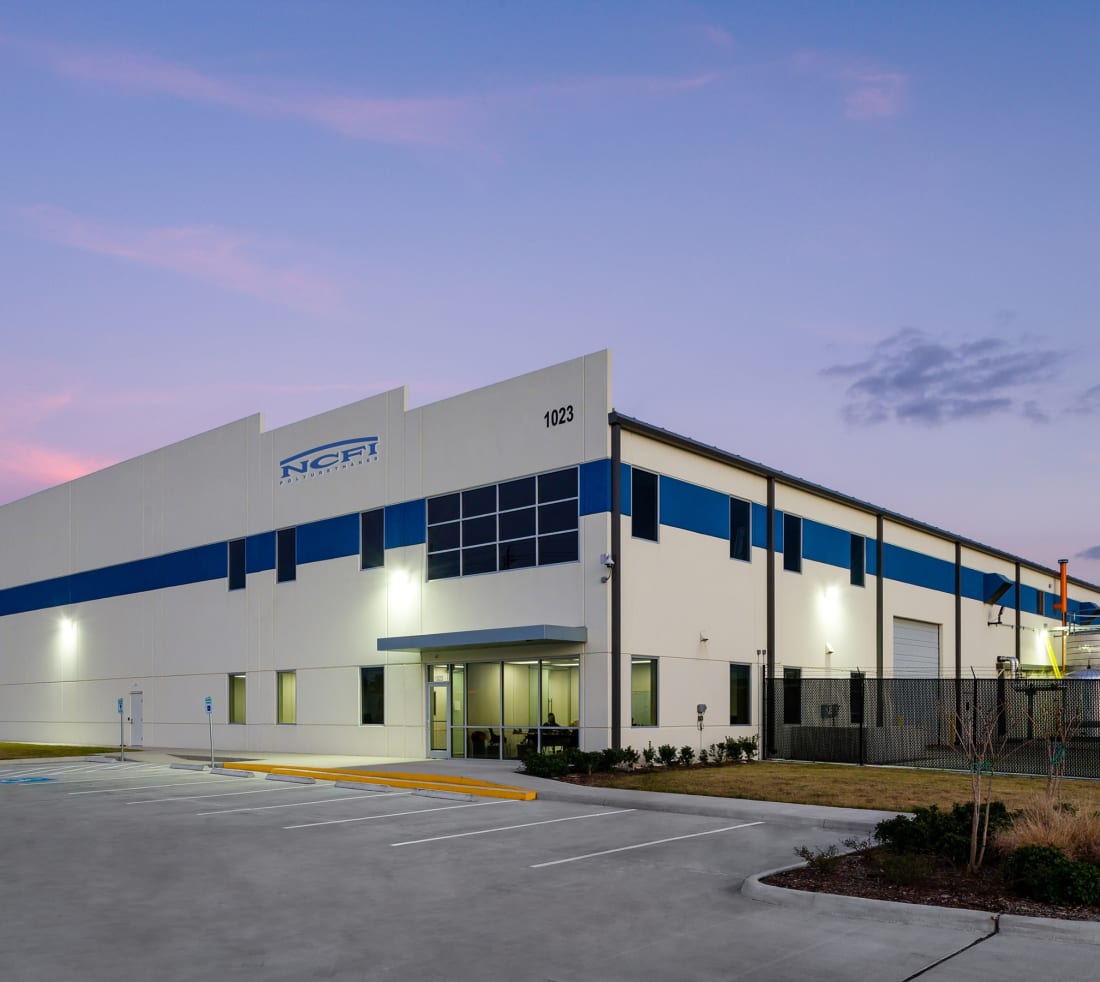Transportation
Whether you’re driving down a highway, riding a commuter rail, or catching a flight, safe and reliable transportation is a top priority. At NCFI, we offer polyurethane systems that are optimally formulated to keep travel safe, minimize delays, and ensure key infrastructure can stay up and running for years to come.


Polyurethane Injection for Safe Travel
When support soils settle and degrade from high-usage, vibration, or stormwater runoff, key infrastructure is affected—roadways sink, railroads deform, bridge transition slabs become misaligned, and taxiways crack. NCFI’s polyurethane systems are specially formulated and tested for compacting loose soils and filling voids once injected. We offer a wide array of polyurethane systems that are perfect for rehabilitating highways, bridge approaches, and airport runways, as well as infrastructure below our roads such as culverts. These systems can be used for compacting loose soils and void filling beneath slabs, as well as lifting and leveling slabs to their original grade.
Warning Signs of Infrastructure Issues
Cracks in the Pavement
Heavy aircraft loading places continuous stress on the pavement, leading to cracks and settlement over time. Environmental factors like temperature changes and poor joint performance can further weaken the concrete.
Poor Drainage
Poor drainage is often a symptom of weakly compacted or eroded soils beneath concrete surfaces. When joints deteriorate, water seeps underneath and accelerates subgrade weakening, which can lead to further structural issues if not addressed.
Uneven Concrete Foundation
When the soil beneath concrete slabs is loose, eroded, or inadequately compacted, it can lead to uneven settling and movement. Polyurethane injection restores safety and structural integrity by stabilizing the underlying soils.
Pavement Sinking
Lack of proper slab support or compaction can lead to settling beneath the concrete. Over time, this results in sinking and structural instability of the pavement.
Common Uses of Geotechnical Polyurethane for Transportation
Bridge Approach and Departure Slabs
Bridge approach and departure slabs are highly susceptible to settlement from vibration, as well as stormwater runoff, which can cause base soil degradation. With continuous traffic movement, voids form underneath the transition slabs, and they begin to settle. Polyurethane injection is an ideal application for bridge transition slab realignment, as it compacts loose soils, lifts, and realigns the bridge transition slab, and helps prevent future soil loss.
Roadways, Highways, and Byways
When support soils subside, roadways crack and sink, polyurethane injection stabilizes and compacts soils and restores their load-bearing capacity while additionally being able to lift and realign the roadway. These solutions help keep commuters safe while minimizing traffic disruptions by reducing the need for lengthy construction projects.
Railroad Track Ballasts
Ballasts support the majority of our railway infrastructure by distributing loads and providing drainage. While this system is proven and widely used, the soils beneath the ballast can degrade over time due to erosion and other environmental factors. Injecting polyurethane helps stabilize and lock the ballast in place while also addressing subsurface issues—keeping rail lines open, level, and safe for use.
Airport Runways
NCFI Polyurethane systems are ideal for airport runway rehabilitation due to their speed and effectiveness, minimizing the disruption to operations. Our Polyurethane systems are a minimally invasive solution that help lift and stabilize runway pavement slabs quickly and cost-effectively. These systems can be used for compacting loose soils and void filling beneath slabs, as well as lifting and leveling slabs to their original grade.

Solutions for Any Project
Beyond the applications highlighted above, our geotechnical polyurethane solutions can be utilized for an even wider range of transportation uses. Our team will work with you to find the right foam formulation for your unique needs.
- Bridge Repair
- Vibration and Settlement Mitigation
- Water Infiltration Prevention in Tunnels
The Advantages of NCFI Polyurethane for Transportation
Fast Cure Times
The quick cure times of our polyurethane systems ensure that projects can be completed quickly, reducing or eliminating downtime completely. Most projects can have foot, vehicle, or air traffic flowing by the time the crew cleans up and is off-site.
No Excavation
There's no need for concrete removal or digging up or disrupting surrounding infrastructure, which reduces labor costs, project duration, downtime, and environmental impact.
Environmentally Inert
Our polyurethane systems are environmentally safe, with no leaching of harmful chemicals into soil or groundwater, and are available with NSF 61 Certification.
Long-Lasting
NCFI's systems create a durable, long-lasting bond with the soil, providing resistance to environmental factors.
Made in America
NCFI polyurethane is proudly manufactured in the U.S., ensuring quality and reliability.
Polyurethane Systems
Our lines of mono- and multi-component polyurethane systems have a variety of densities and cure times to meet your application’s needs. Each batch meets strict testing and quality assurance standards, ensuring reliability in the field. See Our Products.
Dual-Component Systems
Dual-Component Polyurethane Systems by NCFI are uniquely formulated, dual-component systems formulated for a variety of geotechnical applications.
Explore ProductLightweight Fill Systems
The Light Weight Fill product line is comprised of dual-component systems formulated for a variety of applications that require low exothermic heat generation for filling large voids and cavities, or building many layers quickly.
Explore ProductSingle-Component Systems
NCFI's Single-Component Polyurethane Systems are a suite of hydrophobic permeation grouts formulated for soil stabilization, void filling, joint sealing, and soil compaction.
Explore ProductFrequently Asked Questions about Transportation Applications with Polyurethane
Yes. While lane closures may be necessary, the speed of NCFI’s polyurethane installation allows for rapid repairs during off-peak hours or limited windows, reducing the impact on commuters and communities.
NCFI’s geotechnical foams are engineered for compatibility with sands, silts, clays, and fill zones, adapting to soil movement and moisture.
It’s designed for long-term performance. NCFI’s formulations resist washout and maintain support under repeated loading.
Injection depths can vary based on soil conditions, type of road surface such as concrete or asphalt and rehabilitation required. Injection depths can range from 3 feet to depths of 20 feet plus in some cases.
NCFI polyurethanes are effective for repairing faulting joints, slab rocking, and settlement induced by inflow and infiltration from underground infrastructure below the roads. The injection process can stabilize soils and road base materials as well as address inflow and infiltration issues with underground infrastructure preventing future soil loss.
Real-World Results

About Us
NCFI has been a global leader in polyurethane foam production since 1964. Seeing the ever-growing applications of polyurethane in the geotechnical stabilization market, NCFI opened the geotechnical division in 2008 in order to provide better service and products to our customers and contractors. Our foam systems are an adaptable, no-excavation solution for meeting geotechnical engineering challenges.
We Have Partnership Down to a Science
We understand the challenges you face, and we’re here to help. Reach out today, and let's work together to find the best solution tailored to your needs with the highest-quality polyurethane foam products available.